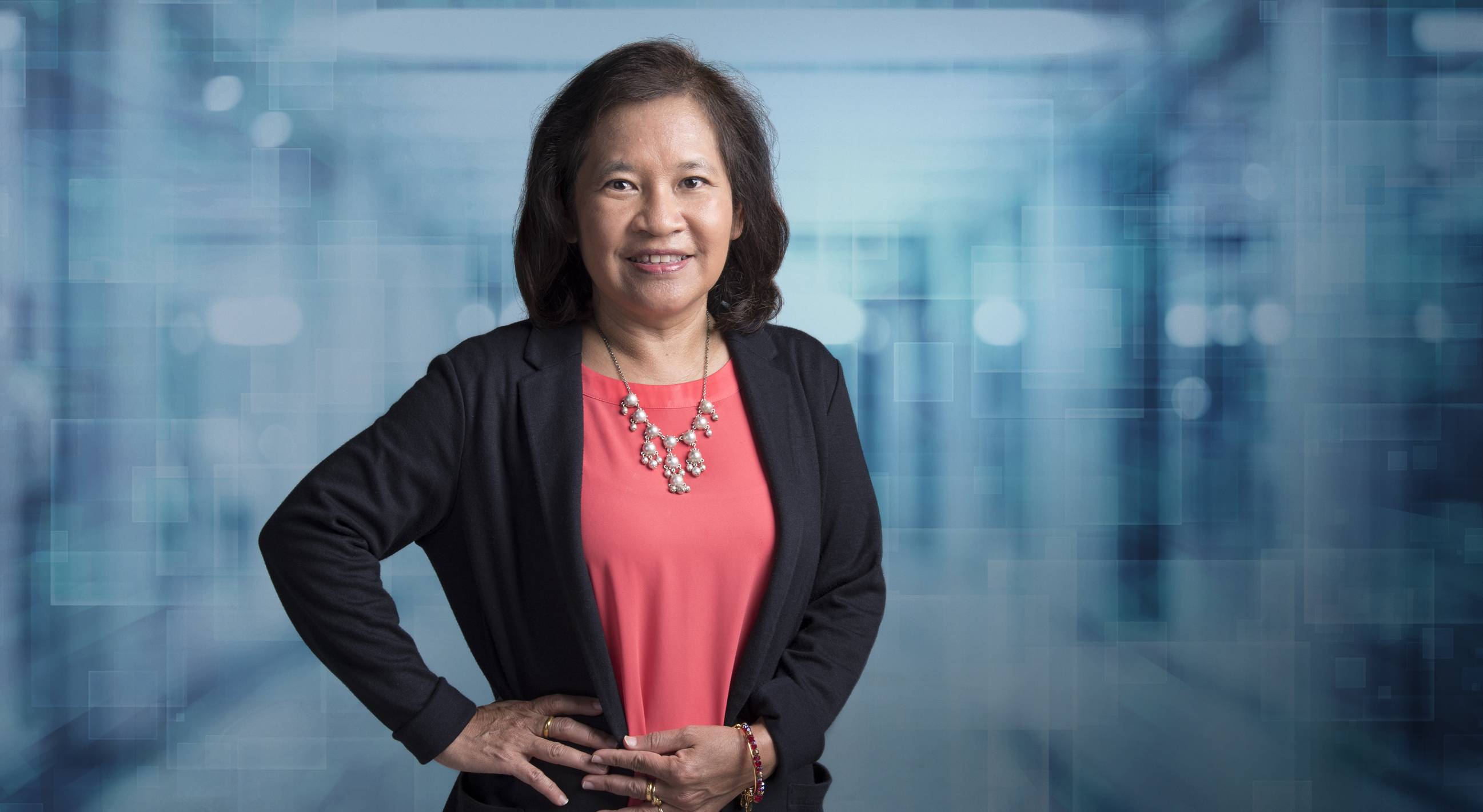Computer science Ph.D.: Specialized knowledge meets entrepreneurship, commercialization in new degree

Computer science Ph.D.
by Robyn Ross
Specialized knowledge meets entrepreneurship, commercialization in new degree
Computer scientists can have strong technical abilities but will miss career opportunities unless they have strong interpersonal skills and business acumen.
While the majority of doctoral programs in computer science don’t provide this type of expertise, Texas State’s new Ph.D. in computer science does. It’s the first such degree in Texas to combine rigorous academic theory with coursework in entrepreneurship and commercialization.
The new graduate program, a culmination of more than a decade of planning, saw its first cohort of nine students arrive in fall 2017. Graduates will have a diverse skill set that equips them for the modern career landscape, says Dr. Anne Ngu, professor and program director.
"Twenty years ago, when somebody got a computer science Ph.D., they most likely would take a faculty position and work in that job for life," Ngu says. "But with the globalization of technology, people change jobs frequently. We want to prepare students for multiple career paths, and we believe that provides a more transformative graduate education in computer science."
The program will fill a growing gap between the number of jobs requiring a Ph.D. in computer science and the number of doctorates earned nationwide, says Dr. Hongchi Shi, professor and department chair. An increasing number of career positions in Central Texas, which include data scientist, software architect, and network security technologist, will require a Ph.D. Companies such as Google, Facebook, and Amazon want prospective employees with an advanced degree for their research and development departments. And in return, the increasing demand for computer science degrees at the undergraduate level translates to a need for more doctorate degrees in teaching positions.
Texas State’s program also capitalizes on the faculty’s reputation for producing outstanding research. But it departs from traditional Ph.D. programs, which have a more theoretical focus, by pairing technical coursework with expertise in leadership, communication skills, and commercialization. It also can accommodate nontraditional, part-time students, such as people who work in the Central Texas tech industry and want to earn a degree without leaving their job.
“We want to prepare students for multiple career paths, and we believe that provides a more transformative graduate education in computer science."
–Dr. Anne Ngu
To that end, the program will partner with the university’s Science, Technology, and Advanced Research (STAR) Park, a research park anchored by a technology business incubator. Companies that use STAR Park to accelerate product development and commercialization also provide benefits to the university. In the past four years, companies at STAR Park have hired 14 Texas State graduates and provided the university $1.5 million of funded research. The 2016 expansion of the STAR One building included infrastructure supporting future industry partnerships with the Department of Computer Science, such as 10-gigabit dual fiber connectivity between the park and the supercomputing center on the main campus.
The Ph.D. in computer science draws on the successful model of the Materials Science, Engineering, and Commercialization (MSEC) doctoral degree, which also combines STEM research and entrepreneurship education. Like MSEC students, computer science students will complete two entrepreneurship boot camps designed to teach them how to create a business plan. They also can draw on the resources of STAR Park — workspace, mentors, funding sources — to launch their own companies, separate from the university.
"The greatest issue with technology-and innovation-based companies is they tend to be in love with technology, rather than understanding the business proposition," says Stephen Frayser, STAR Park’s executive director. "We’ll prepare students in this program to ask the questions that are important for a business approach: What are the applications of this research, is there a market for it, and how do I get it launched?"